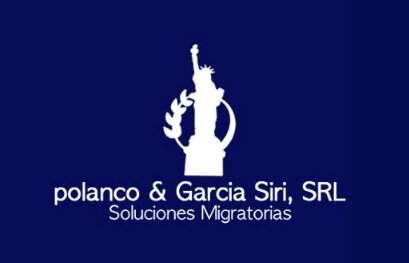Best Divorce & Separation Lawyers in Santiago de los Caballeros
Share your needs with us, get contacted by law firms.
Free. Takes 2 min.
Free Guide to Hiring a Family Lawyer
List of the best lawyers in Santiago de los Caballeros, Dominican Republic
About Divorce & Separation Law in Santiago de los Caballeros, Dominican Republic
Divorce and separation law in Santiago de los Caballeros falls under the broader principles and statutes established by the Dominican Republic's Civil Code. Divorce is a legal process that ends a marital union, while separation may refer to arrangements regarding living apart without formal dissolution of marriage. The Dominican legal system offers several routes for couples to consider when facing the breakdown of marital relationships, including mutual consent divorces, cause-based divorces, and judicial separation. As a significant urban center, Santiago de los Caballeros has many legal professionals and court facilities equipped to handle these sensitive matters efficiently.
Why You May Need a Lawyer
Engaging a lawyer when facing divorce or separation is highly advisable in Santiago de los Caballeros. Legal professionals can navigate the complexities of the Dominican legal system, protect your rights, and ensure proper documentation. Common situations requiring legal help include:
- Contested divorces where one spouse does not agree to the terms or grounds for divorce
- Complex division of property or assets
- Child custody, support, and visitation disputes
- Spousal support (alimony) claims
- Ensuring compliance with local procedures and document requirements
- Alternative dispute resolution such as mediation or negotiation
A qualified lawyer can clarify your options, handle paperwork, represent you in court, and help you reach a fair settlement.
Local Laws Overview
Divorce and separation proceedings in Santiago de los Caballeros are governed primarily by the Civil Code of the Dominican Republic. Some key aspects include:
- Types of Divorce: The law recognizes divorce by mutual consent, for cause (such as abuse or abandonment), and via conversion of a legal separation into divorce.
- Residency: At least one spouse must typically be a resident of the Dominican Republic for a period defined by the law.
- Family Court Jurisdiction: Family courts in Santiago handle matters related to marriage dissolution, custody, and support.
- Division of Assets: Marital property is subject to division, with consideration given to prenuptial agreements and individual contributions.
- Children: Legal emphasis is placed on the best interests of children for custody, visitation, and financial support.
- Notarial and Judicial Process: Some divorces require notarial acts, while contested cases generally proceed through the court system.
- Foreign Nationals: Special procedures may apply if one or both spouses are foreign nationals, but the Dominican court can still exercise jurisdiction.
Frequently Asked Questions
What are the grounds for divorce in Santiago de los Caballeros?
Grounds for divorce include mutual consent, incompatibility, infidelity, abuse, desertion, conviction of a criminal offense, and other legally recognized causes.
Can both spouses agree to divorce without going to court?
Yes, if both spouses agree, they may pursue a mutual consent divorce, which is often quicker and less complicated, though certain legal formalities and hearings still apply.
How is property divided after a divorce?
Property acquired during marriage is generally divided equally, unless a valid prenuptial agreement states otherwise. Each spouse retains their individually owned property.
How is child custody determined?
The family court prioritizes the best interests of the child, considering factors such as emotional ties, parental capability, and the child's needs. Joint custody is possible when appropriate.
What support may a spouse receive after divorce?
The law provides for spousal support (alimony) when one spouse is economically disadvantaged, based on the length of the marriage and each party’s financial resources.
How long does the divorce process take?
The duration varies based on complexity. Mutual consent divorces may take a few months, while contested cases can last much longer depending on litigation and negotiation.
Do I need to attend court if I am out of the country?
In some cases, you may be represented by a lawyer through a duly executed power of attorney. However, personal attendance may be required for certain hearings.
Can a foreigner get divorced in Santiago de los Caballeros?
Yes, as long as at least one party fulfills the local residency requirement. The divorce may be recognized internationally depending on the laws of your home country.
How are debts handled in a divorce?
Debts contracted during the marriage are typically split equally, unless otherwise agreed in a prenuptial or postnuptial contract, or imposed differently by the court.
What should I do if I fear for my safety during separation?
Contact local authorities or a lawyer immediately. The court can issue protection orders, and support services are available for those at risk of domestic violence.
Additional Resources
Individuals in Santiago de los Caballeros seeking legal advice about divorce and separation can access support from the following resources:
- Local Family Courts (Juzgados de Paz or Juzgados de Primera Instancia Familiar y de Menores)
- Dominican Bar Association (Colegio de Abogados de la República Dominicana)
- Ministry of Women’s Affairs (Ministerio de la Mujer), which assists with family and domestic issues
- Legal Aid Clinics and Nonprofit Organizations focused on family rights
- Private law firms specializing in family law in Santiago de los Caballeros
Next Steps
If you are considering divorce or separation in Santiago de los Caballeros, start by gathering relevant documentation such as your marriage certificate, identification, proof of income, and information about any children or property involved. Schedule a consultation with a family law attorney familiar with local procedures. Be prepared to discuss your situation openly so your lawyer can offer tailored advice. Remember, early legal guidance can help you make informed decisions and navigate the process more smoothly.
Lawzana helps you find the best lawyers and law firms in Santiago de los Caballeros through a curated and pre-screened list of qualified legal professionals. Our platform offers rankings and detailed profiles of attorneys and law firms, allowing you to compare based on practice areas, including Divorce & Separation, experience, and client feedback.
Each profile includes a description of the firm's areas of practice, client reviews, team members and partners, year of establishment, spoken languages, office locations, contact information, social media presence, and any published articles or resources. Most firms on our platform speak English and are experienced in both local and international legal matters.
Get a quote from top-rated law firms in Santiago de los Caballeros, Dominican Republic — quickly, securely, and without unnecessary hassle.
Disclaimer:
The information provided on this page is for general informational purposes only and does not constitute legal advice. While we strive to ensure the accuracy and relevance of the content, legal information may change over time, and interpretations of the law can vary. You should always consult with a qualified legal professional for advice specific to your situation.
We disclaim all liability for actions taken or not taken based on the content of this page. If you believe any information is incorrect or outdated, please contact us, and we will review and update it where appropriate.















